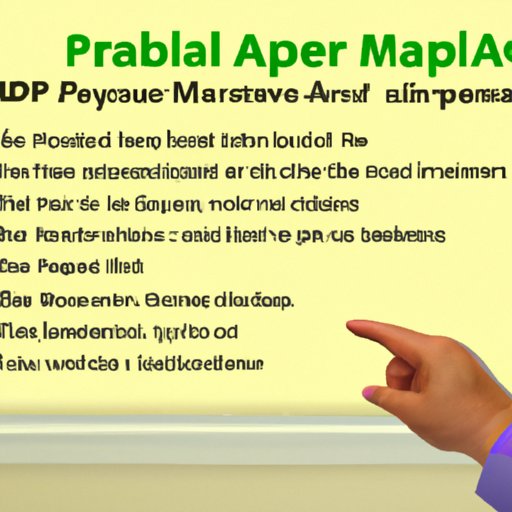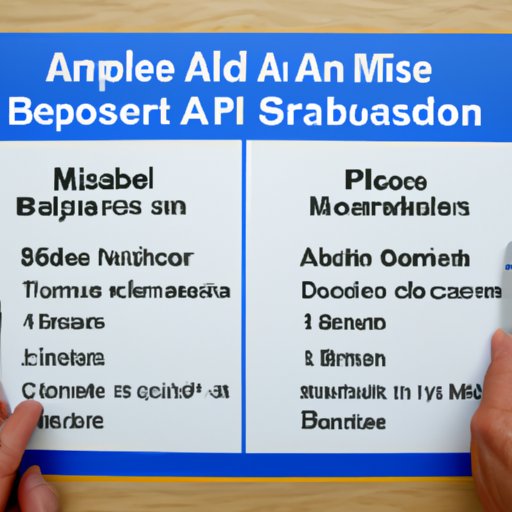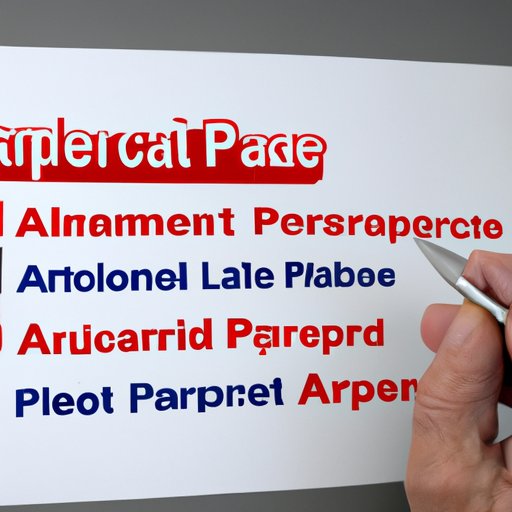Introduction
Medicare is a federal health insurance program that is designed to provide coverage for individuals who are 65 years and older, certain younger individuals with disabilities, and individuals with permanent kidney failure. Medicare is made up of four parts: Part A, Part B, Part C, and Part D. In this article, we will focus on exploring who is eligible for Medicare Part A and the requirements for qualification.

Explaining the Basics of Medicare Eligibility for Part A
Medicare Part A is known as hospital insurance and provides coverage for inpatient hospital care, skilled nursing facility care, hospice care, and some home health care services. In order to be eligible for Medicare Part A, individuals must meet certain criteria and have sufficient work history.
Who is Eligible for Medicare Part A?
In general, individuals who are 65 and older, or under 65 but have certain disabilities, and those with permanent kidney failure are eligible for Medicare Part A. Individuals who are 65 and older typically qualify for Medicare Part A if they are already receiving Social Security benefits, Railroad Retirement benefits, or they are citizens or permanent residents of the United States.

How to Determine Eligibility for Medicare Part A
In order to determine if you are eligible for Medicare Part A, you must first complete an application. The application will ask for information such as your name, date of birth, Social Security number, and other pertinent information. Once you have completed the application, you will need to submit it to the Social Security Administration. They will review your application and make a determination regarding your eligibility for Medicare Part A.
Examining the Requirements to Qualify for Medicare Part A
There are several requirements that must be met in order to qualify for Medicare Part A. These include age requirements, work history requirements, and residency requirements.
Age Requirements
Individuals who are 65 and older are generally eligible for Medicare Part A. However, individuals who are under 65 may also be eligible if they have certain disabilities or if they have permanent kidney failure. According to a study by the Kaiser Family Foundation, “About 10 million people are eligible for Medicare because of disability, and another 4 million are eligible because of end-stage renal disease.”
Work History Requirements
In order to qualify for Medicare Part A, individuals must have sufficient work history. This means that individuals must have worked for at least 10 years in the United States and paid taxes into the Medicare system. According to the Centers for Medicare & Medicaid Services (CMS), “If you or your spouse have worked long enough in a job where you paid Medicare taxes, you may not have to pay a monthly premium for Part A coverage.”
Residency Requirements
In addition to the age and work history requirements, individuals must also meet residency requirements in order to qualify for Medicare Part A. In general, individuals must be legal residents of the United States in order to qualify for Medicare Part A. According to CMS, “You must live in the United States for at least 5 continuous years to get Medicare hospital insurance (Part A).”

Comparing Medicare Part A and B Eligibility
Medicare Part A and Part B are two separate parts of Medicare. While the eligibility requirements for both parts are similar, there are some differences between them. It is important to understand these differences in order to determine which part is right for you.
What is the Difference Between Medicare Part A and B?
Medicare Part A is known as hospital insurance and provides coverage for inpatient hospital care, skilled nursing facility care, hospice care, and some home health care services. Medicare Part B is known as medical insurance and covers doctor’s visits, preventive care, durable medical equipment, mental health services, and more. Both parts require individuals to meet certain eligibility requirements, although the specifics vary.
How Do They Differ in Terms of Eligibility?
In terms of eligibility, Medicare Part A is generally available to individuals who are 65 and older, or under 65 but have certain disabilities, and those with permanent kidney failure. Medicare Part B, on the other hand, is available to individuals who are 65 and older, or under 65 but have certain disabilities, and those with end-stage renal disease. Additionally, individuals must meet the same work history, residency, and citizenship requirements for both parts.
Outlining the Cost of Medicare Part A
Although Medicare Part A is generally free for those who have worked and paid taxes into the Medicare system, there are still costs associated with the coverage. It is important to understand these costs in order to determine if Medicare Part A is the right choice for you.
What Does Medicare Part A Cost?
For those who are eligible for premium-free Part A, there is no monthly premium. However, individuals who do not meet the eligibility requirements for premium-free Part A may be required to pay a monthly premium. According to CMS, “The standard Part A premium is $471 per month in 2020, but it can be higher depending on your work history.” Additionally, individuals may be responsible for deductibles, coinsurance, and copayments when receiving care.
How Is Coverage Paid For?
Coverage for Medicare Part A is typically paid for through payroll taxes. Individuals who have worked and paid taxes into the Medicare system typically qualify for premium-free Part A. For individuals who do not meet the eligibility requirements for premium-free Part A, coverage is typically paid for through monthly premiums.

Investigating Common Misconceptions about Medicare Part A Eligibility
There are several common misconceptions about Medicare Part A eligibility. It is important to understand these misconceptions in order to make sure that you are applying for the correct coverage.
What Are Some Common Misconceptions About Medicare Part A Eligibility?
One common misconception is that Medicare Part A is only available to individuals who are 65 and older. This is not true; individuals who are under 65 may be eligible if they have certain disabilities or if they have permanent kidney failure. Another misconception is that individuals must have worked for 10 years in order to qualify for Part A. While this is true for most individuals, those who are under 65 and have certain disabilities or permanent kidney failure may qualify without meeting the work history requirement.
How Can You Avoid Making Mistakes When Applying for Medicare Part A?
In order to avoid making mistakes when applying for Medicare Part A, it is important to research the eligibility requirements and make sure that you meet all of the necessary criteria. Additionally, it is important to read over the application carefully and make sure all information is accurate. Finally, it is important to contact the Social Security Administration with any questions you may have regarding Medicare Part A eligibility.
Analyzing the Benefits of Medicare Part A Coverage
Medicare Part A is a valuable form of health insurance that can provide coverage for many types of care. It is important to understand the benefits of Part A coverage in order to determine if it is right for you.
What Are the Benefits of Medicare Part A?
Medicare Part A provides coverage for inpatient hospital care, skilled nursing facility care, hospice care, and some home health care services. Additionally, it can help reduce out-of-pocket costs for those who are eligible for premium-free Part A. According to a study by the Kaiser Family Foundation, “Part A helps pay for inpatient hospital stays, post-hospital care in a skilled nursing facility, hospice care, and some home health care.”
How Can Medicare Part A Help You?
Medicare Part A can provide coverage for inpatient hospital care, skilled nursing facility care, hospice care, and some home health care services. Additionally, it can help reduce out-of-pocket costs for those who are eligible for premium-free Part A. Ultimately, Medicare Part A can provide peace of mind and financial security in the event of a medical emergency.
Conclusion
In conclusion, Medicare Part A is a valuable form of health insurance that can provide coverage for many types of care. In order to be eligible for Medicare Part A, individuals must meet certain criteria and have sufficient work history. It is important to understand the eligibility requirements and the benefits of Part A coverage in order to determine if it is right for you.
(Note: Is this article not meeting your expectations? Do you have knowledge or insights to share? Unlock new opportunities and expand your reach by joining our authors team. Click Registration to join us and share your expertise with our readers.)
